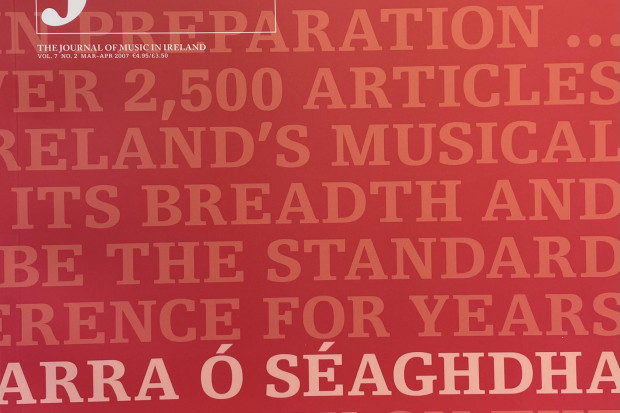
Benjamin Dwyer
Retelling a Bloody Myth
Benjamin Dwyer’s music often combines technical sophistication with an exploration of the primordial and the abject. Scores such as Scenes from Crow (2009) place a high demand on the performer, using extended instrumental techniques; at the same time, those techniques are frequently used to produce harsh, guttural, brutal effects. Dwyer’s music in this way adheres to Terence McKenna’s observation of the curious movement by which, since the early twentieth century, much Western art has become increasingly intellectual whilst in the same gesture focussing increasingly on the primordial (a so-called ‘archaic revival’).
Umbilical (2011) for trio and tape fits this pattern. A nine-movement retelling of the bloody Oedipus myth, it charts Oedipus’s fateful marriage to his mother and her eventual suicide. For Dwyer, Ancient Greek tragedy ‘presents for our consideration a theatre of irrationality and absurdity, which are in fact inescapable elements of daily existence for many.’ Unsettling the Oedipus myth’s patriarchal orientation, Umbilical focuses on the tragedy of Jocasta, Oedipus’s mother and lover.
Lyrical and chaotic
Umbilical arose as a collaboration with visual artist David Farrell, theorist Tina Kinsella and archivist Michael Dwyer, and has, in performance, an optional part for dancer. The work’s three characters – Jocasta, Oedipus and Laius – are represented respectively by baroque violin (Maya Homburger), double bass (Barry Guy) and harpsichord (David Adams), all players giving sharp, committed performance here. Often with electronic backing, the three performers programmatically dramatise various key moments in Jocasta and Oedipus’s intense ‘umbilical’ bind.
Stylistically, the nine contrasting movements range from the lyrical to the chaotic, the modal to the atonal. Each of the characters gets a solo movement with tape, these three character profiles exploring ‘less their physical and narrative roles than their symbolic presence and function.’ Thus, ‘Laius’ combines slow, shimmering chords on tape with athematic harpsichord flurries, invoking the ghost of a character already dead when the action of Oedipus Rex takes place. ‘Oedipus’ is a jagged double bass solo, by turns febrile and lugubrious; Dwyer gives the double bass pitch material derived from the Seikilos (the oldest surviving notated music, inscribed on an Ancient Greek grave) alternating with noisy scratching of the strings in a high register. ‘Abyssos’ is a lament by Jocasta, the baroque violin’s plaintive modal inflections augmented by an electronic environment of further, pre-recorded, reverberant violin tones.
Death and pleasure
The other movements are full of dramatic action. In ‘Agon’, Dwyer dramatises Jocasta’s tornness between eros (desire) and thanatos (death) with a passacaglia, wherein the violin (soon joined by harpsichord and double bass) fights against the intractable descending bassline it is all the while bound to articulate. ‘Eros’, temporarily moving away from the negative perspective on the myth, imagines the pleasure or jouissance Jocasta must have experienced through having sex with her suitor, Oedipus. Homburger adds to her nimble, bright violin solo with whispers and other vocal exclamations, subsequently joined by harpsichord and then double bass, the violin and double bass, in their tryst, moving in and out of unison.
Following Umbilical’s programme is unfortunately difficult at times; instead of a straightforward programme note, we get a dense theoretical essay (7,668 words). Trying to find information on the different movements can have a needle/haystack quality. That aside, and despite the work’s occasional austerity, Umbilical is a strong contribution to the body of Irish notated music since 2000. It represents Dwyer’s engagement with a vitalist, ritualist conception of music removed from our at times sterile museum-exhibit art culture. And it represents another important release from Diatribe, whose good work for adventurous new music in Ireland continues.
Benjamin Dwyer’s Umbilical is available from Diatribe Records. For more, see www.diatribe.ie.
Published on 6 December 2017

















